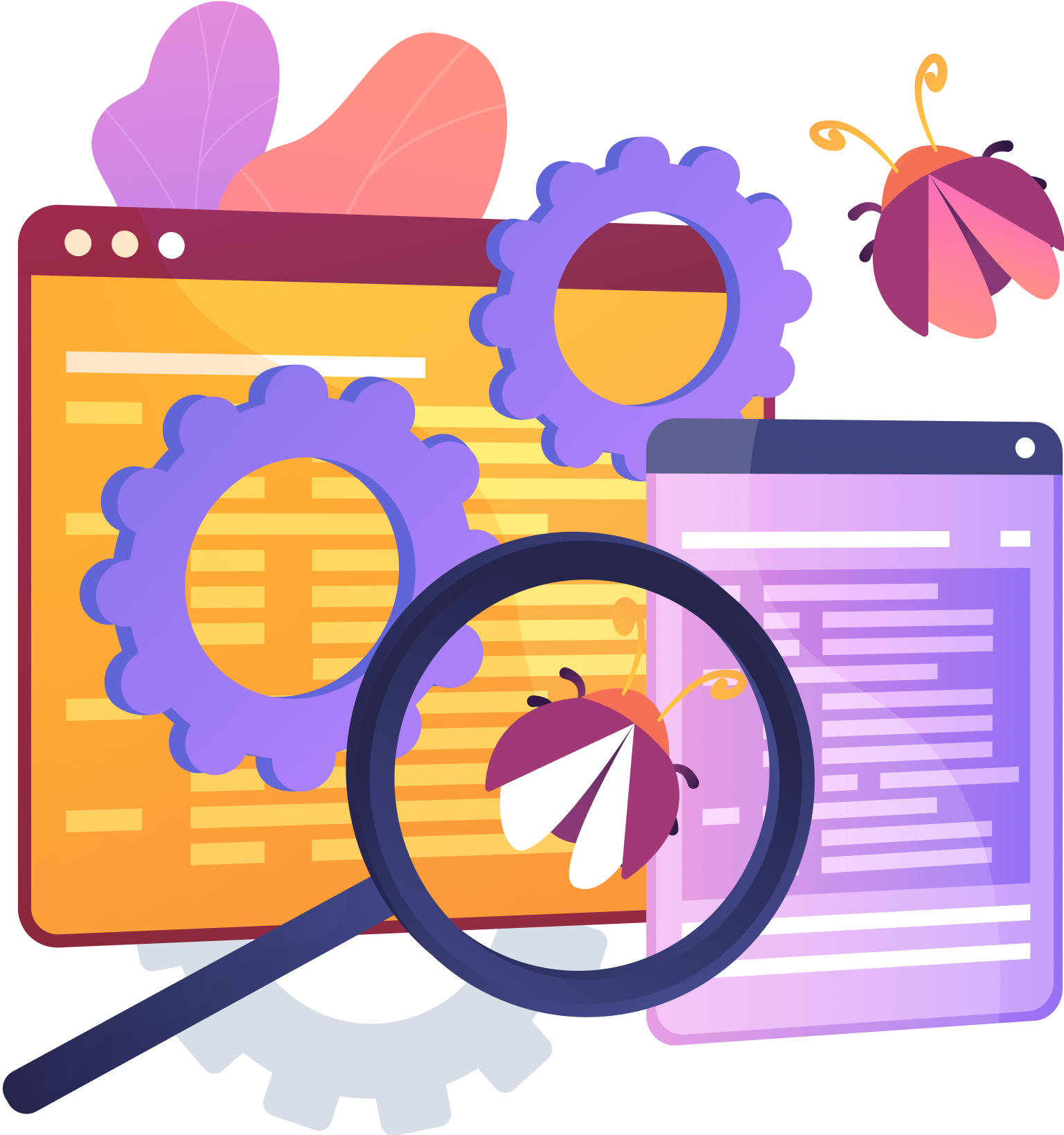The Custom web Application Development

Businesses increasingly understand the value of a solid online presence in the ever-changing digital market. A bespoke web application is one crucial component that may distinguish a company. In this post, we'll look at what constitutes a custom web app, what doesn't, the numerous advantages of creating a one-of-a-kind product, and the procedures involved in bespoke web application development.
Customizing Web Applications
A bespoke web application is a highly customized software solution that is methodically created to match the exact needs and specifications of a given business or organization. Unlike off-the-shelf solutions, which provide general capabilities for a wide range of users, a bespoke web app is built from the ground up. This customized approach guarantees that the client's objectives, process complexities, and specific user demands are all met. Every program component, from features to functions, is tailored to the client's needs, maximizing productivity and tackling specific issues.
This level of customization not only improves the user experience but also gives the company a competitive advantage by providing a solution that perfectly matches the business's peculiarities.
What's The Difference Between A Web App And A Website?
Web Application:
A web application, accessible via a web browser, is a dynamic online application. Unlike regular web pages, web apps provide individualized user experiences and interactive features. Project management software, social media sites, and online banking portals are a few examples.
Essential Features of Web Applications
Interactivity: Web applications allow users to act, interact with data, and personalize their experience. They frequently include functions like databases, real-time updates, and user accounts.
Functionality: Web applications are made to carry out particular tasks or functions, such as document editing, online buying, and video streaming. They frequently handle and process data using intricate backend systems.
Responsive Design: Web applications work seamlessly on PCs, laptops, tablets, and smartphones by being tailored to different screen sizes and devices.
Frequent Updates: To increase customer pleasure, security, and performance, web apps are often updated and improved. Usually, these updates are distributed without any problems and don't require user input.
Website:
Conversely, a website is an online collection of web pages that may be accessed. Websites offer users static text, photos, and multimedia material, acting as digital stores or informational centres. Online portfolios, blogs, and company websites are a few examples.
Important Website Features
Informational material: The main goal of websites is to inform and engage users with static material. This content includes product descriptions, corporate biographies, blog entries, and contact details.
Minimal Interactivity: Websites often offer less interactivity than web apps, even if some may have interactive features like contact forms or multimedia galleries.
Navigation Structure: Most websites have a hierarchical navigation structure that makes navigating between pages and sections simple. Instead of enabling intricate interactions, the focus is on directing people through the material.
Static Design: Websites with fixed layouts and content are frequently known as having a static design. Manual involvement is necessary and may include web development knowledge when updating the content or Design of a website.
The Advantages of Creating Custom Web Application Development
Tailored To Your Business Requirements
Custom web apps are created with your particular company's needs in mind, ensuring every feature syncs with your process and goals. This personalized approach results in a more efficient and productive tool for your company.
Scalability and adaptability
As your company expands, off-the-shelf solutions may fall short. On the other hand, custom web apps are scalable. They can be changed to meet your organization's changing demands and scale, offering the flexibility required for long-term success.
Increased Security
Because of their extensive use, generic solutions may be vulnerable to security flaws. Custom web apps designed with security as a significant focus may integrate strong safeguards to protect sensitive data, providing peace of mind.
User Experience Enhancement
Custom web apps may be created with the end-user in mind, yielding a more intuitive and user-friendly experience. This improves customer pleasure and increases productivity by shortening the employee learning curve.
Techniques for Custom Web Application Development
Extensive Requirement Analysis
Before beginning Development, it is critical to have a thorough grasp of the client's business processes, goals, and user demands. This entails involving stakeholders and doing in-depth requirement analysis to establish a solid basis for the project.
Strategic Thinking
A well-defined project plan describes the Development's milestones, timeframes, and resource allocation. This guarantees that the development process continues on track, deadlines, and customer expectations are met.
Methodology of Agile Development
Adopting an agile strategy offers more adaptability to changing requirements. Regular feedback loops and iterative development cycles guarantee that the final result resembles the client's vision.
Utilization of Cutting-Edge Technologies
Keeping up with the newest technology is essential in bespoke web application development. Using cloud computing, artificial intelligence, and blockchain technologies can improve the application's usefulness, performance, and scalability.
Types of Custom Web App Development
ERP (enterprise resource planning) systems
Custom ERP systems combine several business operations and procedures into one platform. They increase productivity, simplify processes, and offer real-time insights into various topics, including HR, finance, inventory control, and resource usage.
Customer Relationship Management (CRM) Systems
By centralizing customer interactions and data, CRM systems improve lead tracking, marketing automation, sales pipeline management, and customer engagement. They support companies in establishing and preserving solid client relationships.
Information management Systems (CMS)
Tailored CMS systems enable companies to produce, oversee, and disseminate digital information effectively. Websites, blogs, and online portals provide capabilities like workflow management, version control, and easily changeable layouts.
E-commerce Solutions
Businesses can sell goods or services online thanks to custom e-commerce platforms. Product catalogues, shopping carts, safe payment gateways, order processing, inventory management, and customer relationship tools are some of the functions they offer.
Systems for supply chain management (SCM)
Tailored SCM systems maximize the movement of products and services from vendors to consumers. Order fulfilment, inventory tracking, demand forecasting, logistics management, and supplier relationship management are some of the features they offer.
Project Management Tools
For teams working on different projects, custom project management tools make it easier to collaborate, track tasks, allocate resources, and monitor progress. They have functions including milestone management, task boards, Gantt charts, and time monitoring.
Learning Management Systems (LMS)
Custom LMS platforms include instructional materials, evaluation tools, course administration, and performance monitoring to support online learning and training programs. Organizations, businesses, and educational institutions use them for staff development and training.
Human Resource Management Systems (HRMS)
HR procedures, including employee onboarding, payroll administration, performance reviews, leave administration and talent acquisition, are automated by custom HRMS solutions. They improve labour management and streamline HR procedures.
Financial Management Systems
Accounting, budgeting, invoicing, tracking expenses, financial reporting, and compliance management are just a few of the economic processes that custom financial management systems assist firms with managing. They aid in making well-informed decisions and offer insights into financial performance.
What Doesn't Qualify As A Custom Web Application?
Apps That Are Available off The Shelf
Off-the-shelf apps are pre-packaged software solutions that are commercially accessible and serve a wide range of users. These apps are created with a one-size-fits-all mindset to address everyday needs across several sectors. Off-the-shelf apps, as opposed to bespoke web applications, have standardized features and functions that may not be adjusted to the particular needs of different enterprises. They are often quick to implement, inexpensive, and appropriate for enterprises with general requirements.
Web App Customization
A bespoke web application, as opposed to off-the-shelf applications, is specially created to match the unique goals and requirements of a given business or organization. These applications are built from the ground up with the client's particular workflows, procedures, and plans in mind. Customized web applications provide an excellent level of flexibility, allowing businesses to include features that are intimately related to their operations. This bespoke approach distinguishes them from off-the-shelf alternatives, giving them a competitive edge by addressing particular difficulties more thoroughly.
When Is off The shelf Superior
Several factors influence the decision between off-the-shelf and bespoke solutions. When a company has a limited budget, needs a rapid and straightforward installation, and can change its operations to meet the standardized characteristics of the application, off-the-shelf apps are preferable.
Furthermore, if a company's demands are reasonably typical and coincide with current off-the-shelf solutions, using these apps can be more cost-effective and time-efficient. Off-the-shelf apps may be a more practical and rapid alternative for businesses with urgent requirements or a lack of resources for considerable modification.
READ ALSO- Build Cost of Events Ticket Booking App Like Ticketmaster?
How Content Management is Important For Web Apps
Content management software is integral for custom web app development, streamlining content creation, organization, and delivery. It provides a centralized repository for digital assets, facilitating efficient content editing, version control, and workflow management. Customization options enable tailored solutions to meet specific business needs, while SEO tools optimize content for improved visibility. Enhanced user experience is ensured through easy navigation and access to dynamic range.
Scalability accommodates business growth, while security features safeguard sensitive data. Integration capabilities enable seamless interoperability with other systems, driving functionality and utility. Content management software forms the backbone of custom web apps, empowering businesses to manage their digital content efficiently and deliver a superior user experience.
conclusion
Investing in web application development is a game changer for firms aiming to stand out in the digital landscape. These applications offer personalized experiences tailored to meet specific business needs, enhancing customer engagement and satisfaction. By employing strategic development methodologies, firms can create robust web apps that streamline processes, improve efficiency, and ultimately gain a competitive edge. From enhancing user experience to optimizing workflow, web applications serve as powerful tools that address the unique requirements of businesses, driving growth and success in the increasingly competitive digital arena.
FAQs (Frequently Asked Questions) Regarding the Development of Custom Web Apps
Q.1- What is the Development of custom web apps?
A- Developing custom web applications entails identifying and addressing specific corporate needs and goals. In contrast to off-the-shelf alternatives, bespoke web apps are created from the ground up to meet particular requirements and difficulties.
Q.2- Why start with custom web app development rather than off-the-shelf options?
A- Developing custom web apps has several benefits, such as scalability, flexibility, and close alignment with your company procedures. Instead of pre-built solutions, custom web apps can be completely tailored to fit your corporate identity and changing business requirements.
Q.3- What are the main phases in creating a custom web application?
A- Creating a custom web application usually includes the requirements of collecting, planning, designing, programming, testing, deploying, and continuous maintenance phases. Each step is essential for the effective delivery of a high-calibre web application.
Q.4- How long does it take to create a unique online application?
A- The time needed to construct a custom web application varies based on the complexity, scope, and features required. Complex apps could take several months to develop, but more straightforward projects might only take a few weeks.
Q.5- Which technologies are frequently employed to create custom web apps?
A- Creating custom web apps frequently combines several technologies, frameworks, and programming languages. Depending on the needs of the project, technologies including HTML, CSS, JavaScript, PHP, Python, Ruby on Rails, AngularJS, React, Node.js, and more are frequently employed.









